Quiz
Quiz
customers.
The company develops a webchat bot to provide automated answers to common customer queries.
Which business benefit should the company expect as a result of creating the webchat bot solution?
Quiz
You have a confusion matrix for the model scored on test data as shown in the following exhibit.

Use the drop-down menus to select the answer choice that completes each statement based on the
information presented in the graphic.
NOTE: Each correct selection is worth one point.
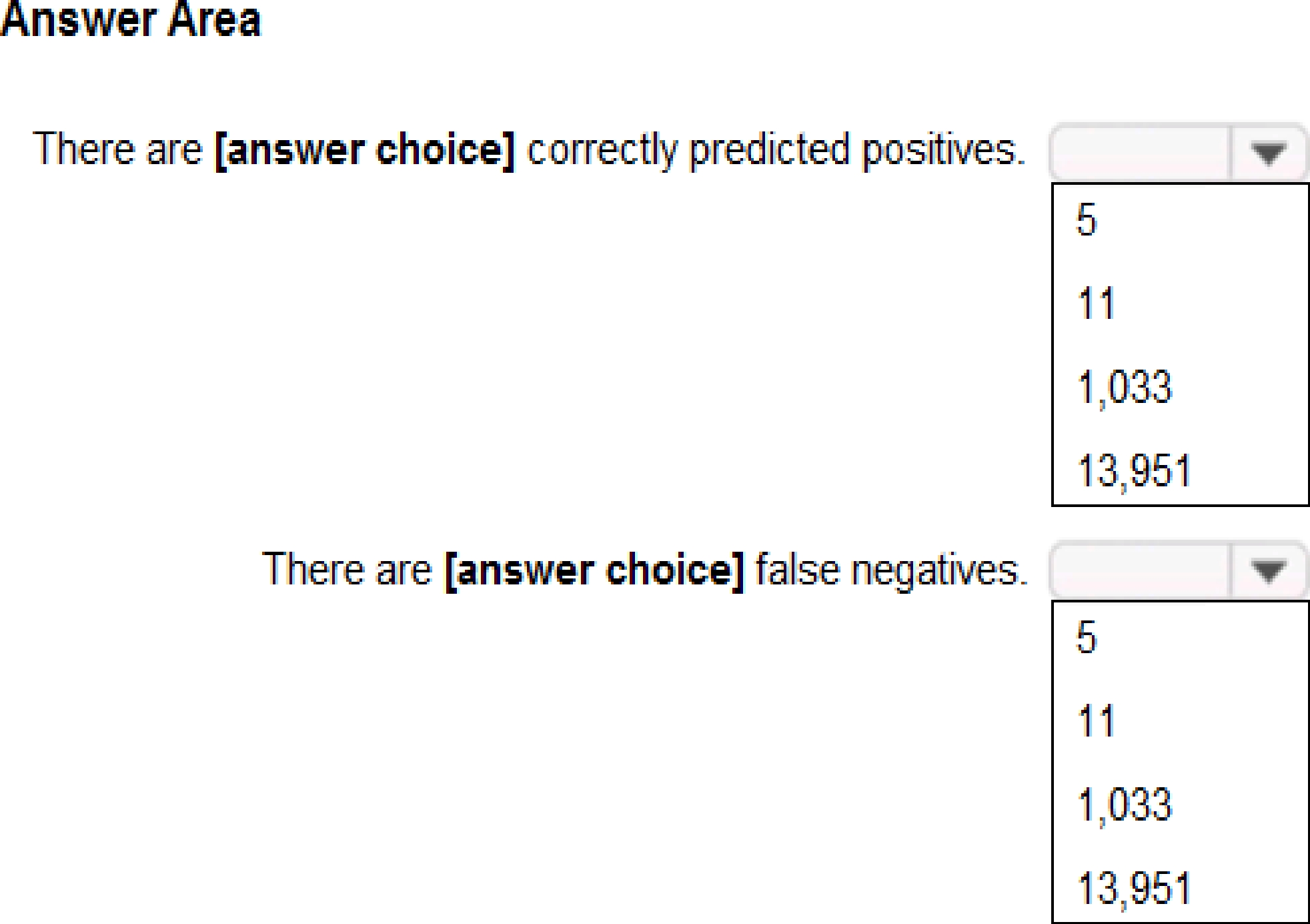
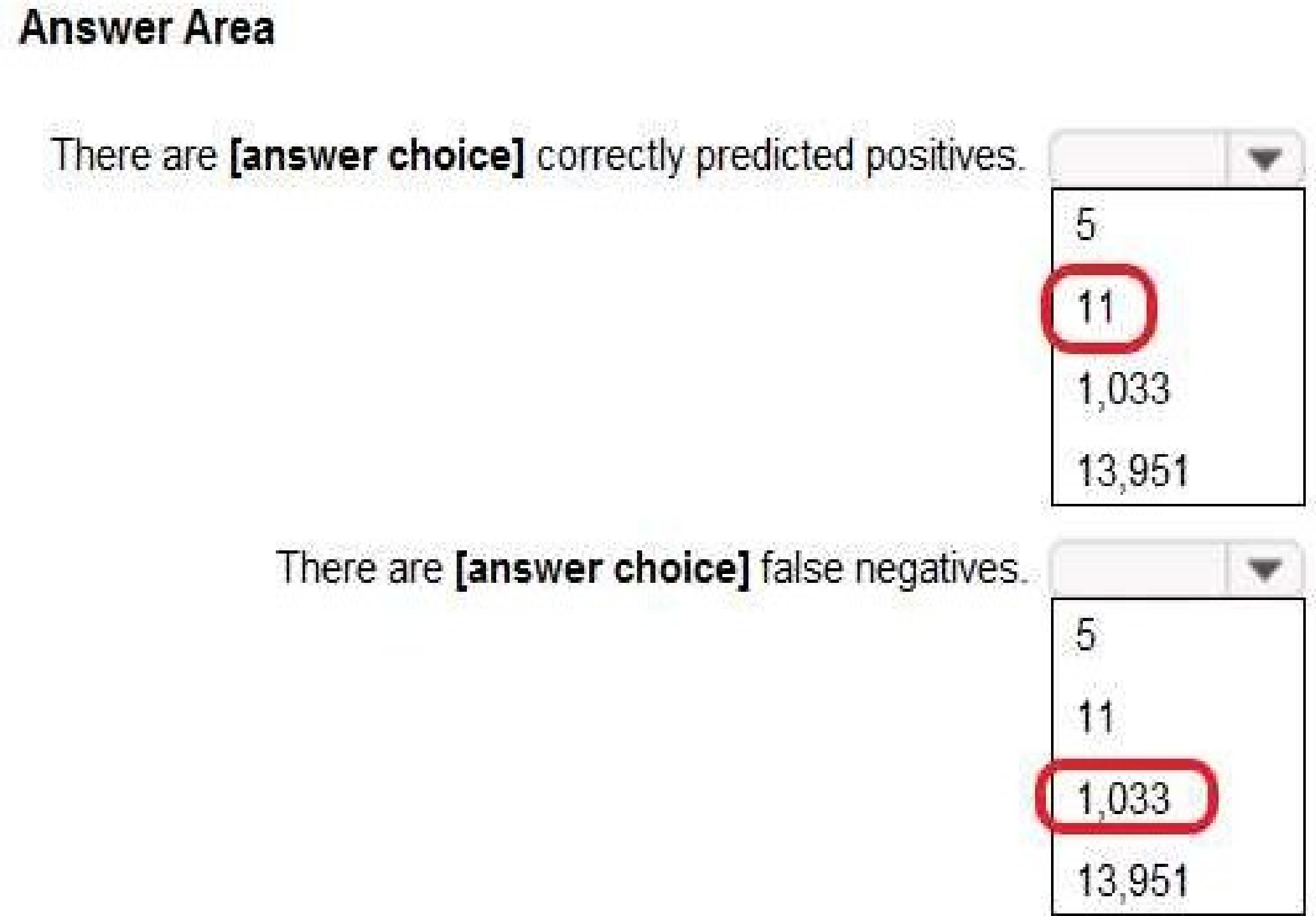
Box 1: 11
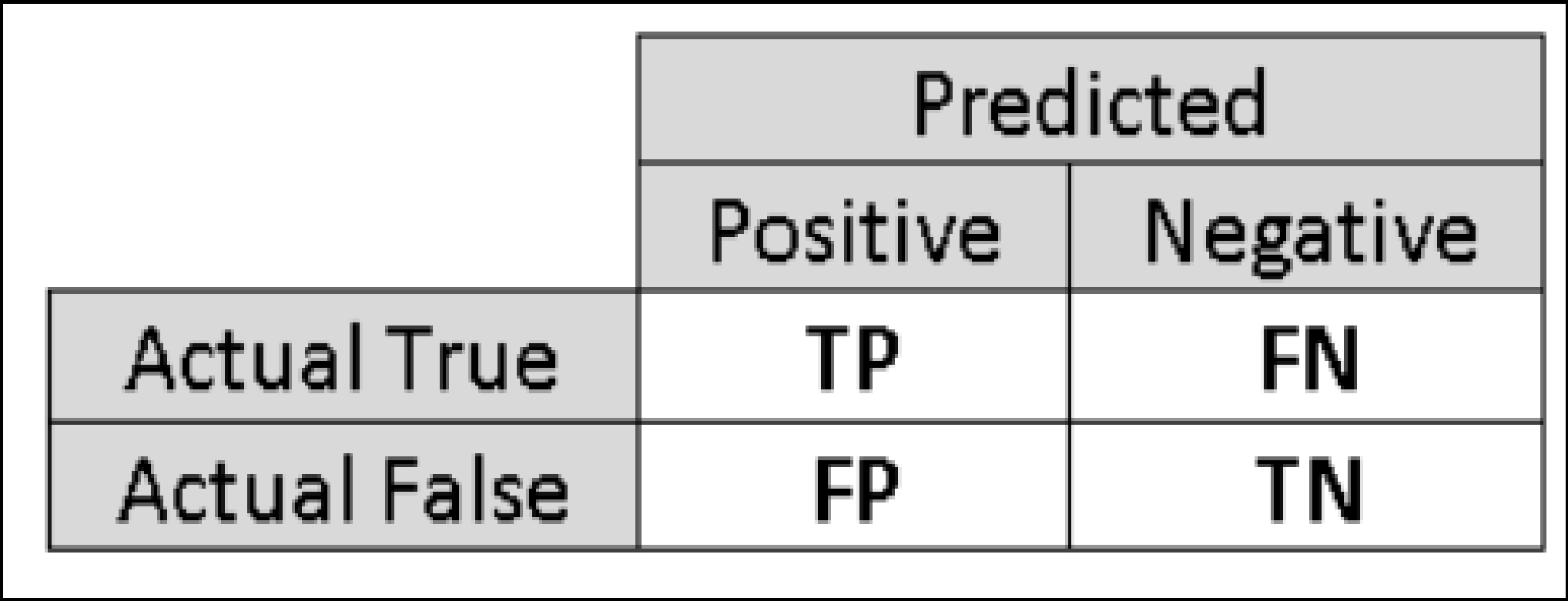
TP = True Positive.
The class labels in the training set can take on only two possible values, which we usually refer to as
positive or negative. The positive and negative instances that a classifier predicts correctly are called
true positives (TP) and true negatives (TN), respectively. Similarly, the incorrectly classified instances
are called false positives (FP) and false negatives (FN).
Box 2: 1,033
FN = False Negative
Reference:
[https://docs.microsoft.com/en-us/azure/machine-learning/studio/evaluate-model-performance](https://docs.microsoft.com/en-us/azure/machine-learning/studio/evaluate-model-performance)
Finding TP is easy. It basically means the value where Predicted and True value is 1 and that is 11 in
this case.
False Negative means where true value was 1 but predicted value was 0 and that is 1033 in this case
The confusion matrix shows cases where both the predicted and actual values were 1 (known as true
positives) at the top left, and cases where both the predicted and the actual values were 0 (true
negatives) at the bottom right. The other cells show cases where the predicted and actual values
differ (false positives and false negatives).
[https://docs.microsoft.com/en-us/learn/modules/create-classification-model-azure-machine-](https://docs.microsoft.com/en-us/learn/modules/create-classification-model-azure-machine-)
learning-designer/evaluate-model
Quiz
You need to ensure that the model meets the Microsoft transparency principle for responsible AI.
What should you do?
Quiz
NOTE: Each correct selection is worth one point.
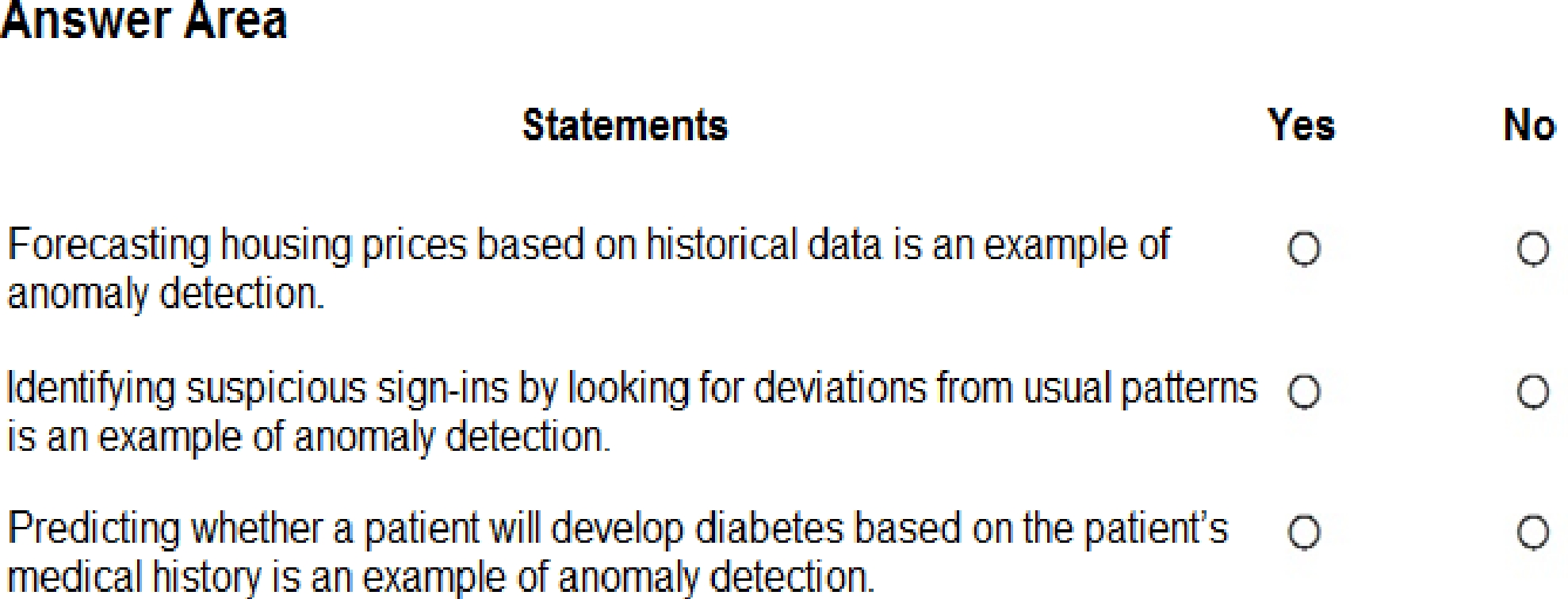
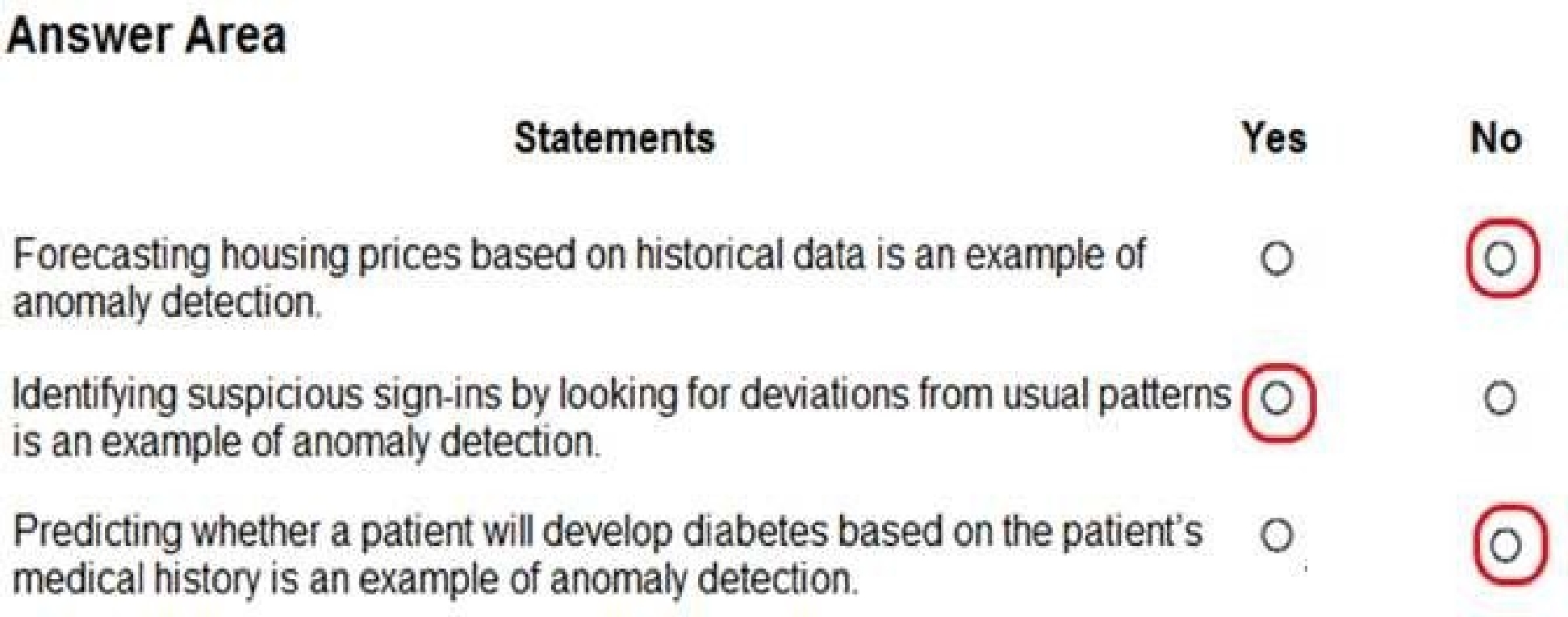
Box 1: No
Box 2: Yes
Box 3: Yes
Anomaly detection encompasses many important tasks in machine learning:
Identifying transactions that are potentially fraudulent.
Learning patterns that indicate that a network intrusion has occurred.
Finding abnormal clusters of patients.
Checking values entered into a system.
Reference:
[https://docs.microsoft.com/en-us/azure/machine-learning/studio-module-reference/anomaly-](https://docs.microsoft.com/en-us/azure/machine-learning/studio-module-reference/anomaly-)
detection
Quiz
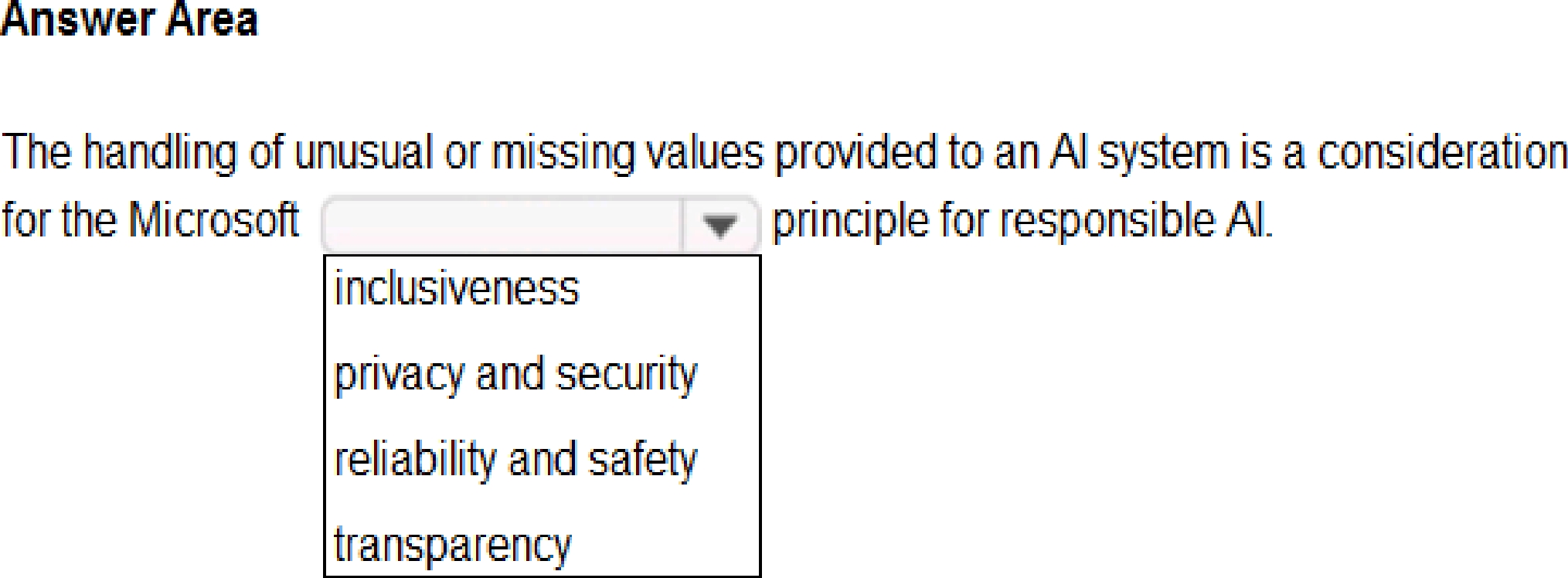
[https://en.wikipedia.org/wiki/Tay_(bot)](https://en.wikipedia.org/wiki/Tay_(bot))
“To build trust, it's critical that AI systems operate reliably, safely, and consistently under normal
circumstances and in unexpected conditions. These systems should be able to operate as they were
originally designed, respond safely to unanticipated conditions, and resist harmful manipulation. It's
also important to be able to verify that these systems are behaving as intended under actual
operating conditions. How they behave and the variety of conditions they can handle reliably and
safely largely reflects the range of situations and circumstances that developers anticipate during
design and testing. We believe that rigorous testing is essential during system development and
deployment to ensure AI systems can respond safely in unanticipated situations and edge cases,
don't have unexpected performance failures, and don't evolve in ways that are inconsistent with
original expectations”
Quiz
Match the types of AI workloads to the appropriate scenarios.
To answer, drag the appropriate workload type from the column on the left to its scenario on the
right. Each workload type may be used once, more than once, or not at all.
NOTE: Each correct selection is worth one point.
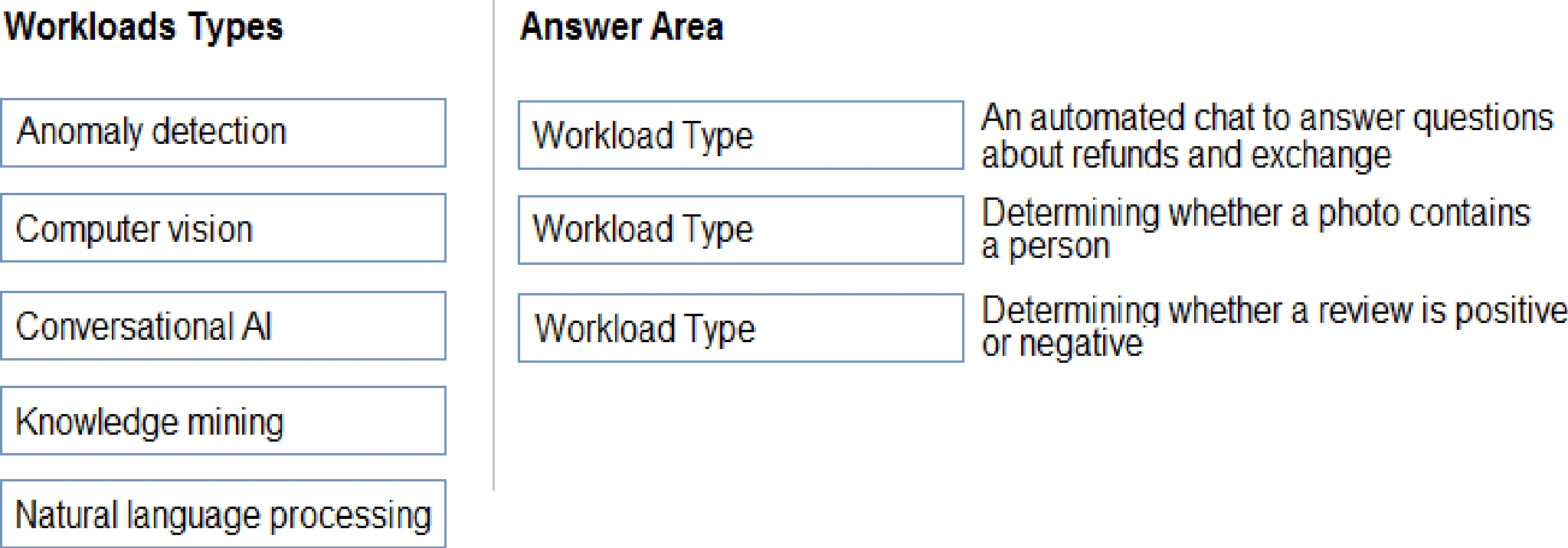
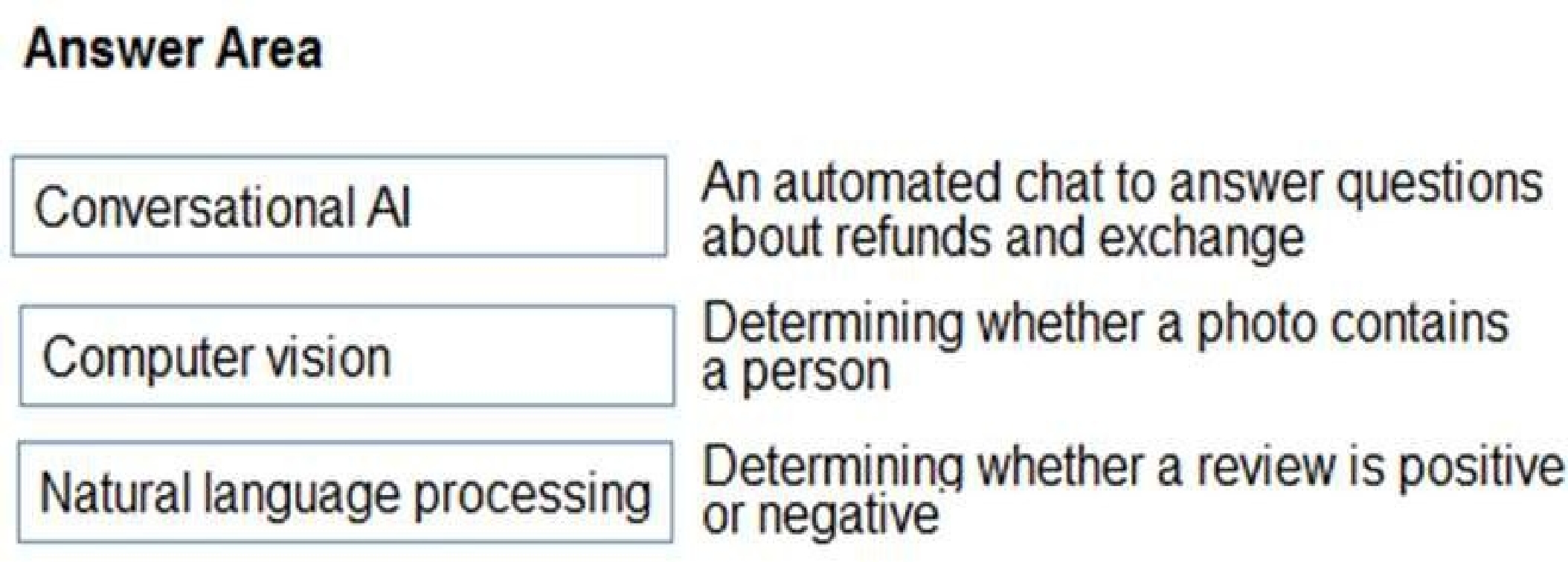
Box 3: Natural language processing
Natural language processing (NLP) is used for tasks such as sentiment analysis, topic detection,
language detection, key phrase extraction, and document categorization.
Reference:
[https://docs.microsoft.com/en-us/azure/architecture/data-guide/technology-choices/natural-](https://docs.microsoft.com/en-us/azure/architecture/data-guide/technology-choices/natural-)
language-processing
Quiz
and other impairments.
This is an example of which Microsoft guiding principle for responsible AI?
Quiz
Match the Microsoft guiding principles for responsible AI to the appropriate descriptions.
To answer, drag the appropriate principle from the column on the left to its description on the right.
Each principle may be used once, more than once, or not at all.
NOTE: Each correct selection is worth one point.
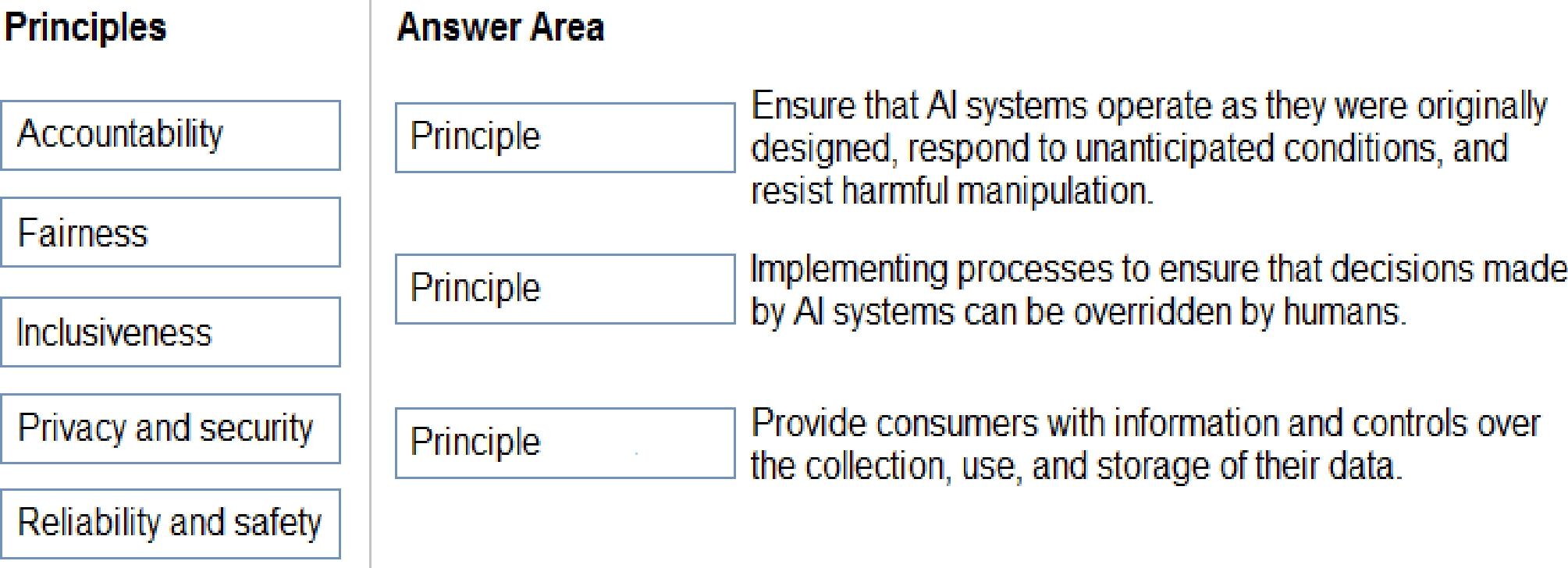
To build trust, it's critical that AI systems operate reliably, safely, and consistently under normal
circumstances and in unexpected conditions. These systems should be able to operate as they were
originally designed, respond safely to unanticipated conditions, and resist harmful manipulation.
Box 2: accountability
Box 3: Privacy and security
As AI becomes more prevalent, protecting privacy and securing important personal and business
information is becoming more critical and complex. With AI, privacy and data security issues require
especially close attention because access to data is essential for AI systems to make accurate and
informed predictions and decisions about people. AI systems must comply with privacy laws that
require transparency about the collection, use, and storage of data and mandate that consumers
have appropriate controls to choose how their data is used
[https://docs.microsoft.com/en-us/learn/modules/responsible-ai-principles/4-guiding-principles](https://docs.microsoft.com/en-us/learn/modules/responsible-ai-principles/4-guiding-principles)
Quiz


Reliability and safety: To build trust, it's critical that AI systems operate reliably, safely, and
consistently under normal circumstances and in unexpected conditions. These systems should be
able to operate as they were originally designed, respond safely to unanticipated conditions, and
resist harmful manipulation.
Reference:
[https://docs.microsoft.com/en-us/learn/modules/responsible-ai-principles/4-guiding-principles](https://docs.microsoft.com/en-us/learn/modules/responsible-ai-principles/4-guiding-principles)
AI systems should perform reliably and safely. For example, consider an AI-based software system for
an autonomous vehicle; or a machine learning model that diagnoses patient symptoms and
recommends prescriptions. Unreliability in these kinds of system can result in substantial risk to
human life.
[https://docs.microsoft.com/en-us/learn/modules/get-started-ai-fundamentals/7-understand-](https://docs.microsoft.com/en-us/learn/modules/get-started-ai-fundamentals/7-understand-)
responsible-ai
Microsoft Azure AI Fundamentals Practice test unlocks all online simulator questions
Thank you for choosing the free version of the Microsoft Azure AI Fundamentals practice test! Further deepen your knowledge on Microsoft Simulator; by unlocking the full version of our Microsoft Azure AI Fundamentals Simulator you will be able to take tests with over 319 constantly updated questions and easily pass your exam. 98% of people pass the exam in the first attempt after preparing with our 319 questions.
BUY NOWWhat to expect from our Microsoft Azure AI Fundamentals practice tests and how to prepare for any exam?
The Microsoft Azure AI Fundamentals Simulator Practice Tests are part of the Microsoft Database and are the best way to prepare for any Microsoft Azure AI Fundamentals exam. The Microsoft Azure AI Fundamentals practice tests consist of 319 questions and are written by experts to help you and prepare you to pass the exam on the first attempt. The Microsoft Azure AI Fundamentals database includes questions from previous and other exams, which means you will be able to practice simulating past and future questions. Preparation with Microsoft Azure AI Fundamentals Simulator will also give you an idea of the time it will take to complete each section of the Microsoft Azure AI Fundamentals practice test . It is important to note that the Microsoft Azure AI Fundamentals Simulator does not replace the classic Microsoft Azure AI Fundamentals study guides; however, the Simulator provides valuable insights into what to expect and how much work needs to be done to prepare for the Microsoft Azure AI Fundamentals exam.
BUY NOWMicrosoft Azure AI Fundamentals Practice test therefore represents an excellent tool to prepare for the actual exam together with our Microsoft practice test . Our Microsoft Azure AI Fundamentals Simulator will help you assess your level of preparation and understand your strengths and weaknesses. Below you can read all the quizzes you will find in our Microsoft Azure AI Fundamentals Simulator and how our unique Microsoft Azure AI Fundamentals Database made up of real questions:
Info quiz:
- Quiz name:Microsoft Azure AI Fundamentals
- Total number of questions:319
- Number of questions for the test:50
- Pass score:80%
You can prepare for the Microsoft Azure AI Fundamentals exams with our mobile app. It is very easy to use and even works offline in case of network failure, with all the functions you need to study and practice with our Microsoft Azure AI Fundamentals Simulator.
Use our Mobile App, available for both Android and iOS devices, with our Microsoft Azure AI Fundamentals Simulator . You can use it anywhere and always remember that our mobile app is free and available on all stores.
Our Mobile App contains all Microsoft Azure AI Fundamentals practice tests which consist of 319 questions and also provide study material to pass the final Microsoft Azure AI Fundamentals exam with guaranteed success. Our Microsoft Azure AI Fundamentals database contain hundreds of questions and Microsoft Tests related to Microsoft Azure AI Fundamentals Exam. This way you can practice anywhere you want, even offline without the internet.
BUY NOW